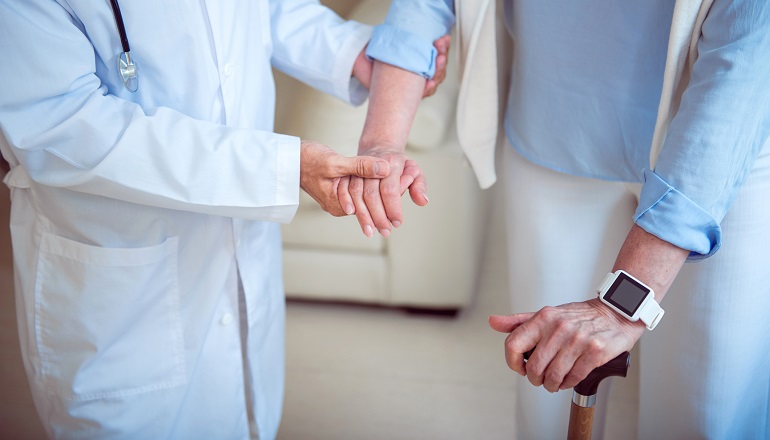Eleven years ago, a driver lost control of her car, jumped the sidewalk, and, as my older boy and husband watched, plowed into me and my three-year-old son. My child was unharmed, but the casualties included an iron fence, a stone staircase, and my right leg. Plus any illusion of life as predictable.
With a lot of help from family, friends, neighbors, and medical professionals, I was able to rehabilitate my body and psyche. I learned to walk on a prosthesis; the nightmares faded. I quit kvetching about what I could do or have and started valuing what was left.
My husband and I had discussed having a third child. The idea now seemed absurd as I struggled to return to Square 1. But one day, feeling I was getting back in the game, it occurred to me that without further stress on my middle-age body, I could have my baby. So began the great adventure of adopting our daughter. After such loss, it was thrilling to plan for adding to my life, to do this big, wonderful, scary thing.
Our daughter, Hannah, is now five years old. Since she never knew me before my accident, she accepts my disability unconditionally. And though I can’t run after her as quickly as I could her older brothers, I find myself flourishing as a mother. Nor am I alone among disabled people who have chosen this route to parenting.
More than 10 million adults in the U.S. have some kind of physical disability or emotional challenge. Yet few of them may realize that adoption is a viable option. We found a real willingness on the part of our social worker and our agency, Alliance for Children, in Wellesley, Massachusetts, to help us. Neither did my disability present a problem for Chinese authorities, whose official policy is to determine placement based on the ability of the disabled person to educate and care for the child.
Though our adoption went smoothly, there are challenges facing an adoptive parent with disabilities. You’ll need a physician’s endorsement stating that your condition will not shorten your normal life. More daunting is the prejudice many people with disabilities still have to contend with. “Let’s face it, it can be hard to adopt,” says Margaret Cahalan, an adoptive mother and a counselor with Through the Looking Glass, a Berkeley, California-based organization that provides services to families with disabled members. “A disabled person is not a front runner.”
While the Americans with Disabilities Act makes it illegal for agencies to turn away prospective adoptive parents based solely on a disability, a person may be rejected if there is an objective reason for concern about the child’s safety. It is particularly important for someone with a disability to find an empathetic social worker who will not reject the candidate outright because of a physical limitation or a history of mental illness.
Melanie Tem, a social worker with Adoption Alliance, a placement agency in Denver, Colorado, finds the county departments of social services offices generally very flexible in their dealings with prospective parents with disabilities. “The Alliance has been successful in placing children with parents with illnesses in their past, such as depression, obsessive-compulsive disorder, and manic depression. The important thing is to get confirmation, as much as possible, that the illness is under control,” says Tem. “If someone is blind or uses a wheelchair, it’s relatively easy to ask how they would cope with care of a young child. With a mental illness, those issues may be harder to put to rest.”
When it comes to international adoption, the willingness to place a child with a disabled parent varies by country, but many have favorable policies similar to China’s, according to Jill Cole, director of International Adoption at Spence-Chapin in New York City. International authorities will generally want to know that a condition isn’t life-threatening and that the parent will be around to be a parent as the child grows up. The bottom line—adults with disabilities should check with their adoption agency before moving ahead with any country.
During our adoption process, my father, an uncle, and a dear cousin became ill, suffered, and died. A madman in Scotland gunned down 16 schoolchildren. Flight 800 crashed, and we may never know why. Horrible, random things happen, and sorrow triumphs. Yet sometimes joy sneaks in and carries the day.
I go around now with a kindergartner in tow and a renewed sense of excitement about life, knowing it will surprise me one way or the other. Let it throw at me whatever it will—thrilling or painful, peaceful or exhausting. I can do it all while standing on one leg.



